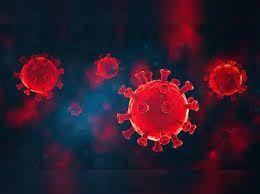The World Health Organisation (WHO), has described the new COVID-19 variant, NB.1.8.1, first detected in late January, as a descendant of the Omicron JN.1 lineage.
The WHO had announced the new COVID-19 variant, NB.1.8.1, currently spreading across parts of the world and causing concern among global health authorities.
It confirmed that the variant was responsible for a growing number of infections globally, prompting it to designate the strain as a “variant under monitoring” due to its increasing prevalence and potential to evade immunity from previous infections or vaccination.
The variant had quickly gained ground, with WHO data showing that it accounted for 10.7 per cent of globally sequenced COVID-19 cases between April 21 and 27, a significant rise from 2.5 per cent just one month earlier.
The majority of these new cases were reported in the Eastern Mediterranean, Southeast Asia, and Western Pacific regions.
In the United States, the Centers for Disease Control and Prevention (CDC) also confirmed a small number of NB.1.8.1 cases, especially among travelers arriving at airports in California, Virginia, Washington, and New York.
While the variant is spreading easily, current evidence suggests that it does not cause more severe illness compared to earlier strains.















